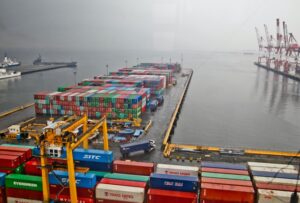
In March 2020, the World Health Organization declared the pandemic caused by Covid 19, forcing people to change their priorities. Trips to the restaurants, vacations to exotic places, watching movies in the big screen took a back seat. They redirected their money and whatever else they earned working from home to renovating their dwellings to double as an office and classroom, purchasing newer laptops and newer models of mobiles, putting new printers in their bedrooms to make for more efficient work output at home, getting gym equipment for fitness because gyms were closed, and furnishing their kitchens with mixers, blenders and juice extractors to make their lives livable during a pandemic. They alternated their meals from being prepared in their kitchen to ordering from restaurants, delivered by any one of the following: Uber Eats, Grab, Skip the Dishes, Foodora, Door Dash, to name a few. Lifestyles changed.
→







